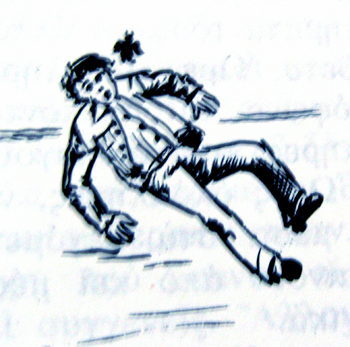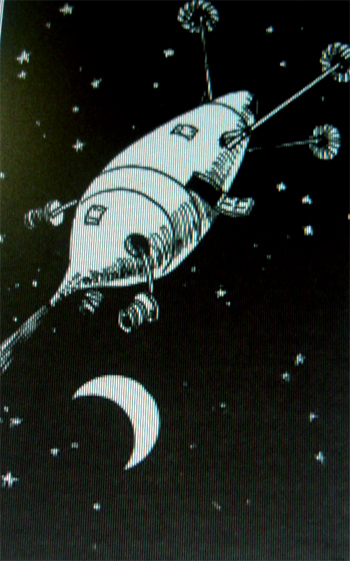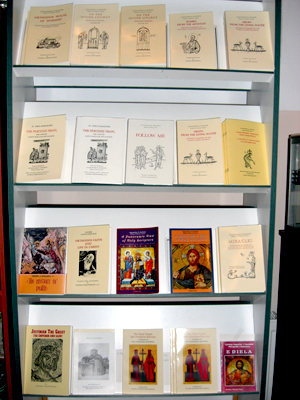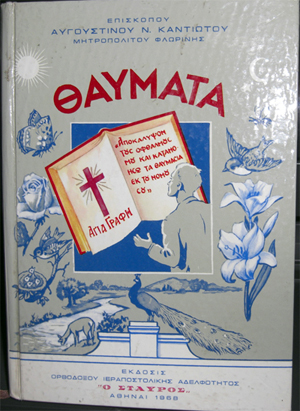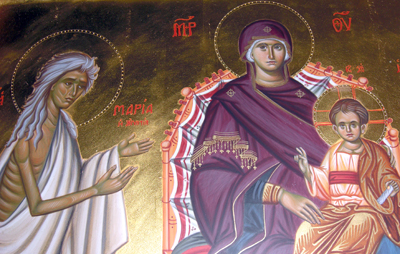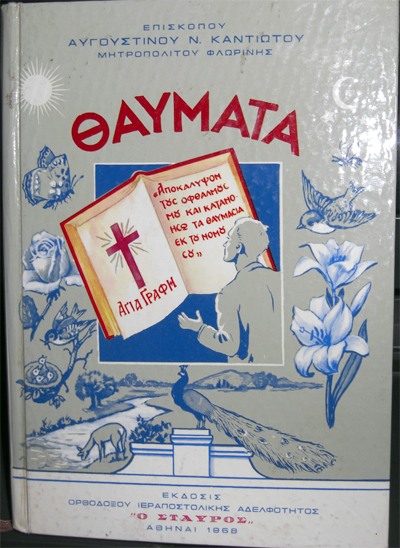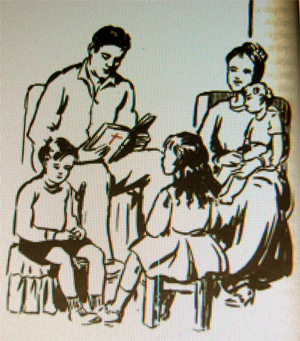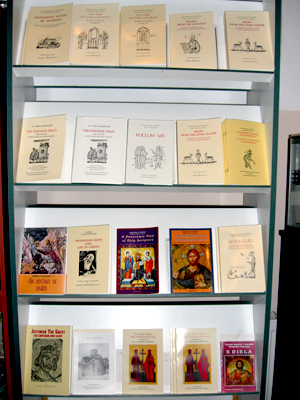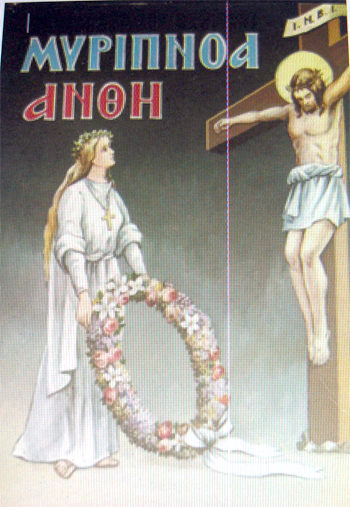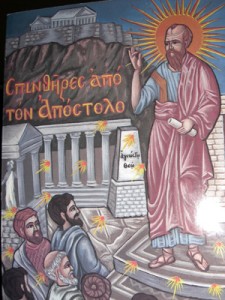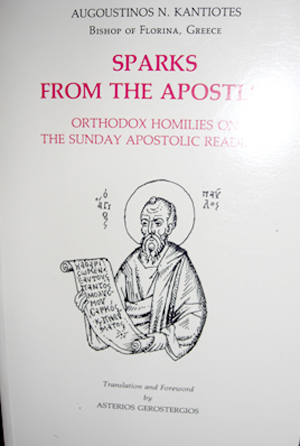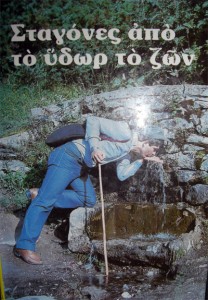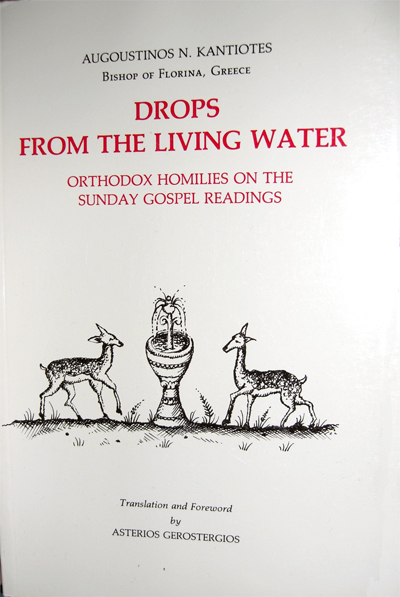SAINT COSMAS AITOLOS
 Posted by: Επίσκοπος Αυγουστίνος Καντιώτης on
Posted by: Επίσκοπος Αυγουστίνος Καντιώτης on  Αυγ 23rd, 2009 |
Αυγ 23rd, 2009 |  Filed under: English
Filed under: English
«Θαυματός ό Θεός έν τοίς αγίοις αυτού» (Ψαλμ.67:36)
24 AUGUST
SAINT COSMAS AITOLOS
A MISSIONARY OF THE BALKANS
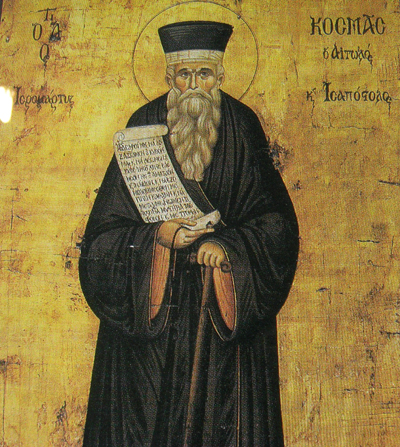 My beloved, when the world hears the word martyrs, their thoughts go to the first centuries of Christianity. Of course it is true that in the first centuries the pressure was tremendous; pagans, unbelievers and atheists, tyrants and emperors greatly persecuted the Christians in order to exterminate Christianity completely – so that the name Christ could not be heard anywhere. At that time, thousand of men and women and even small children preferred martyrdom rather than deny the faith of Christ. They are the martyrs of the first century of Christianity. It would be erroneous, however, for someone to maintain that the martyrs of Christ existed only during the first centuries. There are martyrs in all centuries and there are today as well.
My beloved, when the world hears the word martyrs, their thoughts go to the first centuries of Christianity. Of course it is true that in the first centuries the pressure was tremendous; pagans, unbelievers and atheists, tyrants and emperors greatly persecuted the Christians in order to exterminate Christianity completely – so that the name Christ could not be heard anywhere. At that time, thousand of men and women and even small children preferred martyrdom rather than deny the faith of Christ. They are the martyrs of the first century of Christianity. It would be erroneous, however, for someone to maintain that the martyrs of Christ existed only during the first centuries. There are martyrs in all centuries and there are today as well.
Certain periods, however, are distinguished from other by the multitude of martyrs. These are periods of harsh persecutions against Christians. The persecutions of these eras do not differ from the persecution of the first centuries, and in some instances these persecutions surpass in cruelty even the persecution of the ancient times.
The period of Turkish domination is such a period of cruel persecution against the Orthodox Christian faith. The Christians suffered much at that time, particularly in the Balkans. The Turks in these places were pressing Christians to change religion and, in that time, many Christians – even whole villages and whole districts – were succumbing to the force and pressure. They left the true religion and began worshipping Mohammed. For example, the whole of Albania, after Christ was inhabited by Orthodox Christians. This country was filled with churches, monasteries, parishes, and dioceses. The pressure in these places was so great, however, that the inhabitants changed religion, denied Christ, and embraced Moslem religion. Only a small minority of them, those who were living in the districts of Heimarra, Korytsa, and Argyrokastron, namely southern Albania, remained steadfast. Even these areas would have succumbed, if it were not for Saint Cosmas Aitolos, a fervent preacher of the Gospel who passed through this region. With his preaching and martyrdom he succeeded in keeping the people of Northern Epirus, and of other districts, from changing their faith. He became a missionary of Greece and of other Balkan lands. The memory of this missionary is celebrated on the twenty-fourth of August. To Saint Cosmas we will dedicate this homily.
Shall we speak about Saint Cosmas? We have written a special book about Saint Cosmas and in this book one may read his sermons, his miracles, and his prophecies. Many were benefited by reading this book. The words which Saint Cosmas said are so strong that even today the Christian who reads them is illuminated, moved, feels his sins; repenting and becoming once again a living Christian and thanking God, for sending such a zealot preacher of His Gospel into the world. He is a preacher who continues to teach the people, even after two centuries.
Saint Cosmas was born in a village of Acarnania. After he learned there his first letters, he left and went to the Holy Mountain where he was instructed by a famous teacher of the Church, Eugenios Voulgaris. He lived a strict monastic life fasting, at the Holy Mountain, praying and studying Holy Scripture and the fathers of the Church. He did not, however, remain forever on the Holy Mountain because, within himself, he was hearing a voice which was telling him that he must go and preach and console the suffering people. He could not find peace while he was thinking that, down in the villages and cities, Christians were suffering and being tortured for Christ’s faith. Saint Cosmas finally left the Holy Mountain and went to Constantinople. He expressed his desire to the patriarch and thus, with the blessing of the patriarch, at the age of 45, Saint Cosmas began his great mission. He became a second Apostle Paul. He made four great journeys, as Paul did. He went to many places but in particular he went to Thessaly, Western Macedonia (Hellenic Macedonia), Epirus, and Albania; namely, to the places which were suffering greatly from the Turks.
He preached the word of God everywhere. In the places where he would preach he would place a cross and under the Cross he would put a stand which served as a temporary pulpit from which he would preach the word of God. Many people congregated. His words came out of his mouth like fire. The Holy Spirit was speaking with the fiery tongue of Saint Cosmas. Such was the grace of his teaching, that women who lived in prodigality and in luxury repented and left at his feet their jewelry. With them, Saint Cosmas bought baptismal fonts and books for the poor churches and built schools for the children of the slaves to be educated. Robbers, who lived in the mountains, after they heard the preaching of Cosmas repented and left thievery. Even the Turks who heard and saw the miracles of Saint Cosmas, were moved and said that this man was a saint.
Finally some evil people defamed him to the Turks and the Pasha of Beration ordered that he be arrested and hanged. They brought him to Aoos River and on its bank, on August 24, 1779 hanged him from a tree. Before they hanged him, the saint prayed. He thanked God who enabled him to suffer martyrdom for His glory. His holy soul flew to heaven. In heaven, he never ceases praying for us and teaching us with his holy teachings, which he has left us.
Let us end this homily with the following words of Saint Cosmas: “Finally, I am telling you this now; to rejoice and be thankful that you were blessed to be pious Orthodox Christians. Also, again, cry and lament for the impious, unbelievers, and heretics who walk in darkness in the hands of the Devil. Be careful, my brothers, no to be proud, not to kill, not to steal, not to take oaths, no to lie, not to hate each-other, no to slander, not to adorn this filthy body, which tomorrow will be consumed by the worms, but to adorn your soul which is more precious than the whole world. Quickly, as much as you can, pray as you are able and have always death in front of you eyes for there is no other teacher greater than death.
I am not worthy, my brothers, to teach you and counsel you; however, I dare to do it and obey the sweetest Jesus Christ and God to send you from heaven His grace and blessing; to bless also this land and all the villages of the Christians, to bless your homes and property and the works of your hands. First, my brothers, might the hand of His compassion forgive your sins and enable you to live well here, peacefully, and in love while in this vain life, and afterwards to go to paradise, to our true country, to rejoice, and be happy, to glorify and worship the Father, the Son and Holy Spirit, the Trinity on in essence and undivided. Amen.
“FRAGRANT FLOWERS” – BY BISHOP AUGOUSTINOS KONTIOTES
e-mail: ibmgs3@verizon.net
www.orthodoxinfo.com/ibmgs
(Απόσπασμα από τό βιβλίο του πατρός Αυγουστίνου «ΜΥΡΙΠΝΟΑ ΑΝΘΗ»! Η μετάφραση ολόκληρου του βιβλίου στα Αγγλλικά έγινε από τόν ακούραστο εργάτη καί αγωνιστή της Ορθοδοξίας, πνευματικόν τέκνον του π.Αυγουστίνου, πατέρα Αστέριο Γεροστέργιο. Προσφέρεται ταπεινά με την εν Χριστώ αγάπη εις ψυχικήν ωφέλειαν Ορθοδόξων Χριστιανών απανταχού της γης και επισκεπτών της ιστοσελίδας του σεβαστού Γέροντος Αυγουστίνου προς δόξαν του Τριαδικού μας Θεού).
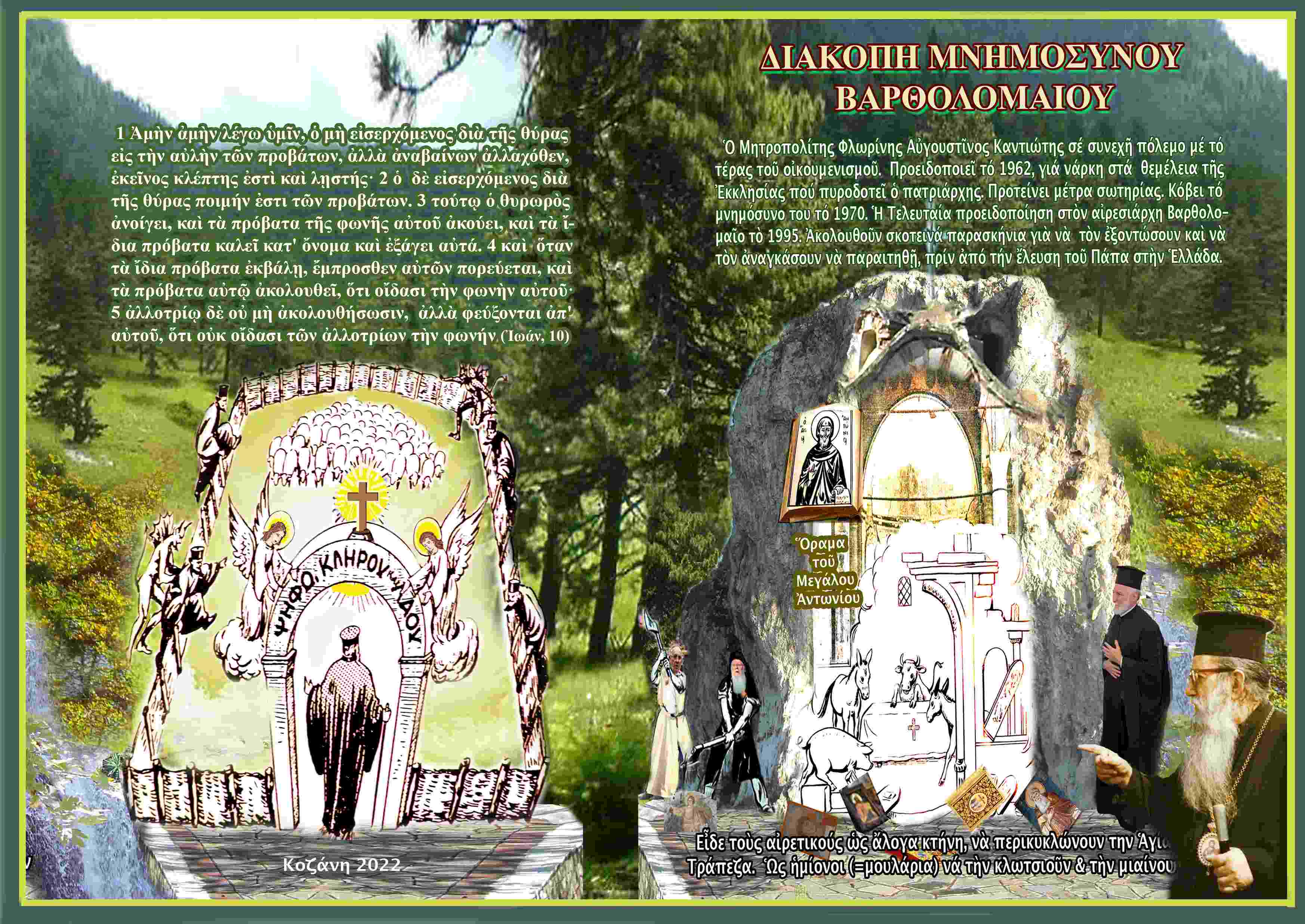
 Be the first!
Be the first! 
